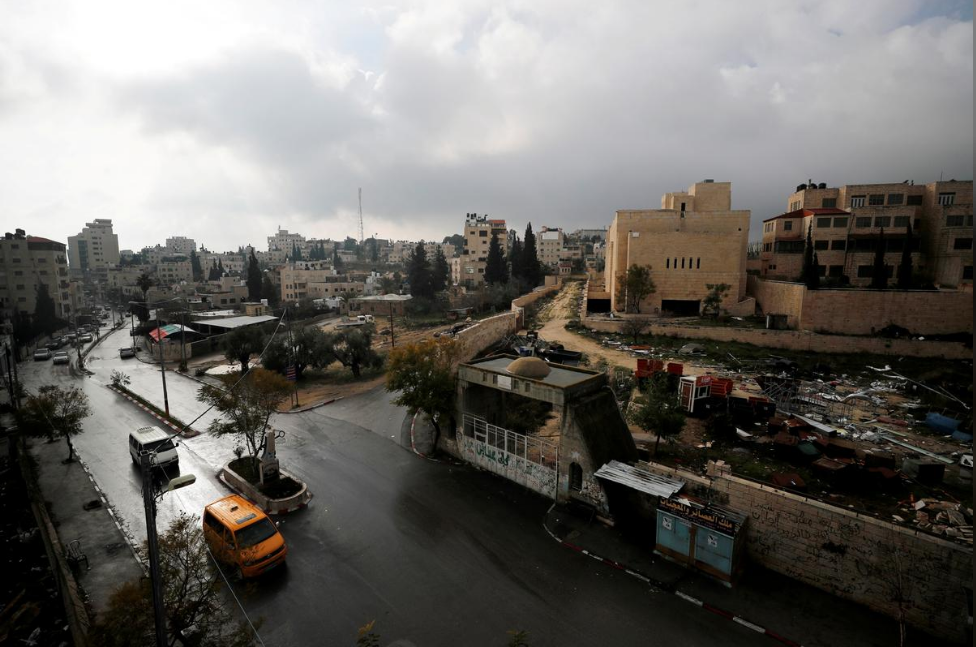Getting your Trinity Audio player ready...
Abu Dis, the town earmarked for the Palestinian capital in U.S. President Donald Trump's Middle East peace plan, lies a short distance to the east of Jerusalem's walled Old City.
A relatively featureless urban sprawl on the old road to Jericho, it has little of the religious or cultural resonance of the historic city center, which contains sites sacred to the three great monotheistic faiths: Judaism, Christianity and Islam.
Abu Dis belongs to the Palestinian governorate of Jerusalem but is just outside the Israeli municipal city limits set by Israel after it captured East Jerusalem from Jordan in 1967, later annexing it.
What the neighborhood does have is a large shuttered building that was constructed in an earlier, more hopeful era to be a site for the parliament of the Palestinian Authority.
That hall now lies abandoned and disused after the breakdown of the Oslo peace process and the outbreak of the second Palestinian Intifada, or uprising, two decades ago.
Since then, Palestinians in Abu Dis have been cut off from Jerusalem neighborhoods to the west by a high concrete wall that Israel built to stop suicide bombers and gunmen entering the city.
The White House document accompanying the U.S. plan's release said the barrier should "serve as a border between the capitals of the two parties." It said Jerusalem should "remain the sovereign capital of the State of Israel, and it should remain an undivided city." It continued: "The sovereign capital of the State of Palestine should be in the section of East Jerusalem located in all areas east and north of the existing security barrier, including Kafr Aqab, the eastern part of Shuafat and Abu Dis, and could be named Al Quds or another name as determined by the State of Palestine."
HOLY SITES
Trump's proposed peace plan would leave the Temple Mount and the Western Wall - the holiest place in Judaism - at the heart of the Old City within Israeli control.
Atop the plateau are two imposing Muslim holy places, the Dome of the Rock and the Al-Aqsa Mosque, which was built in the 8th century. Muslims regard the site as the third holiest in Islam, after Mecca and Medina in Saudi Arabia.
Palestinians seek this compound as part of the future capital of a potential state and to which Palestinian Authority President Mahmoud Abbas was referring when he said it was "impossible for any Palestinian, Arab, Muslim or Christian child to accept" a state without Jerusalem.
The day after the Trump plan identified Abu Dis as a potential capital, residents were scornful of the notion.
Mohammed Faroun, an Abu Dis resident, said: "The capital of Palestine is Jerusalem."
Another resident, who chose to remain anonymous, said: "Trump, or whoever else, are not welcome. Jerusalem tells its own story, every stone tells about its history. It was never Israeli or American, it is Palestinian, Islamic and Arab."


